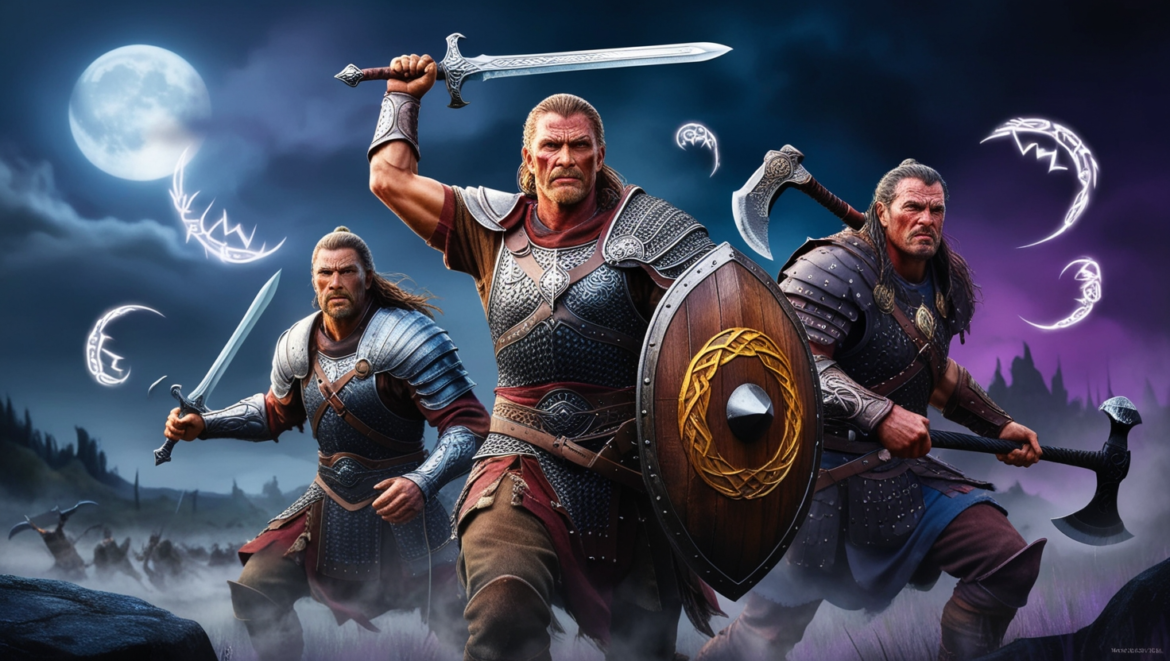
Introduction:
Warriors have existed throughout history, embodying strength, discipline, and the relentless pursuit of excellence. They are fighters and individuals deeply immersed in the study of various disciplines. So, what do warriors study? The answer is complex and spans physical, mental, and spiritual dimensions as warriors strive to prepare themselves for challenges on and off the battlefield. This article will explore the multifaceted studies undertaken by warriors, delving into historical, cultural, and modern perspectives.
Historical Perspective: What Do Warriors Study?
In ancient times, the question of what do warriors study often revolved around martial skills. Warriors like samurai in Japan, knights in Europe, and Spartan soldiers in ancient Greece trained rigorously in combat techniques. They studied swordsmanship, archery, and hand-to-hand combat to become proficient in the art of war. However, their education didn’t stop at physical training. Samurai, for example, studied Bushido, a code of ethics emphasizing loyalty, honor, and discipline. Knights adhered to the chivalric code, which stressed virtues like courage, justice, and respect for women.
Physical Training: A Core Element of What Do Warriors Study
Physical fitness has always been a cornerstone of what do warriors study. Strength, agility, endurance, and coordination are crucial for warriors to perform effectively in combat. Training regimens often include rigorous exercises like running, weightlifting, and specialized drills to enhance combat readiness. Martial arts, such as karate, judo, and taekwondo, also play a significant role in the physical education of modern warriors.
Mental Fortitude: What Do Warriors Study Beyond Combat Skills?
Mental strength is as important as physical prowess in a warrior’s life. So, what do warriors study to cultivate mental fortitude? Warriors often study disciplines like psychology, philosophy, and mindfulness. These studies help them develop resilience, focus, and emotional intelligence, which are essential for making sound decisions under pressure.
For instance, warriors may study Stoicism, a philosophy that teaches self-control and the importance of rational thought in facing adversity. Similarly, meditation and mindfulness practices are integral to many warriors’ routines, enabling them to remain calm and centered even in chaotic situations. Modern warriors, such as soldiers and athletes, often undergo mental conditioning programs that include visualization techniques, stress management, and cognitive behavioral therapy.
The Role of Strategy: What Do Warriors Study in Terms of Tactics?
Another crucial aspect of what do warriors study is strategy and tactics. From ancient battlefield formations to modern military operations, studying strategy has always been integral to a warrior’s education. Ancient texts like The Art of War and Carl von Clausewitz’s On War offer timeless insights into strategy principles, such as the importance of adaptability, deception, and understanding one’s enemy.
Spiritual Dimensions: What Do Warriors Study About Inner Growth?
Spirituality is another dimension of what do warriors study. Many warrior cultures emphasize the importance of inner growth and connection to a higher purpose. For example, samurai practiced Zen Buddhism, which taught them to embrace impermanence and maintain a calm mind. Native American warriors often engaged in spiritual rituals and sought visions to guide their paths.
Modern warriors also explore spirituality to find balance and purpose. This might involve studying religious texts, engaging in prayer or meditation, or participating in ceremonies that foster a sense of unity and belonging. Spiritual studies help warriors align their actions with values and find meaning in their struggles.
Modern Warriors: What Do Warriors Study in Today’s World?
In contemporary times, the definition of a warrior has expanded beyond the battlefield. Soldiers, first responders, athletes, and even corporate leaders can embody the warrior ethos. So, what do warriors study in today’s context?
Modern warriors study subjects like leadership, communication, and conflict resolution. These skills are essential for navigating the complexities of contemporary life and fostering teamwork. They also research technology, as advancements in weaponry, surveillance, and cyber warfare have transformed the nature of conflict. Knowledge of artificial intelligence, robotics, and cybersecurity is becoming increasingly important for modern warriors.
Furthermore, warriors study the importance of community and service. They understand their role is to fight, protect, and uplift those they serve. This broader perspective reflects a shift in the warrior’s purpose from individual achievement to collective well-being.
Cultural Variations: What Do Warriors Study Across the Globe?
Different cultures have unique answers to the question of what warriors study. The Kshatriya class traditionally studied the Dhanurveda, an ancient martial arts and warfare text in India. In Africa, warriors of the Zulu nation trained in spear fighting and the art of ambush. Indigenous tribes in the Americas studied tracking, survival skills, and the ways of nature.
These cultural variations highlight warriors’ adaptability and ability to integrate diverse forms of knowledge. Warriors develop a well-rounded understanding of their craft by studying their traditions and learning from others.
The Importance of Lifelong Learning: What Do Warriors Study Continuously?
A defining characteristic of true warriors is their commitment to lifelong learning. They realize that mastery is a process rather than a final goal. So, what do warriors study throughout their lives? The answer evolves with time and experience. As warriors grow older, they may shift their focus from physical training to mentoring the next generation, studying subjects like pedagogy and coaching.
They also study the lessons of their own experiences, reflecting on past victories and failures to gain wisdom. This continuous process of learning and self-improvement ensures that warriors remain practical and relevant, regardless of the challenges they face.
Conclusion
What do warriors study is as timeless as the warriors themselves. Their studies encompass various disciplines, from physical training and mental conditioning to strategy, spirituality, and lifelong learning. Warriors are not merely fighters but scholars, philosophers, and leaders dedicated to mastering their craft and serving a greater purpose. By understanding what do warriors study, we gain insight into the depth and complexity of the warrior ethos, which continues to inspire and guide people in all walks of life.


